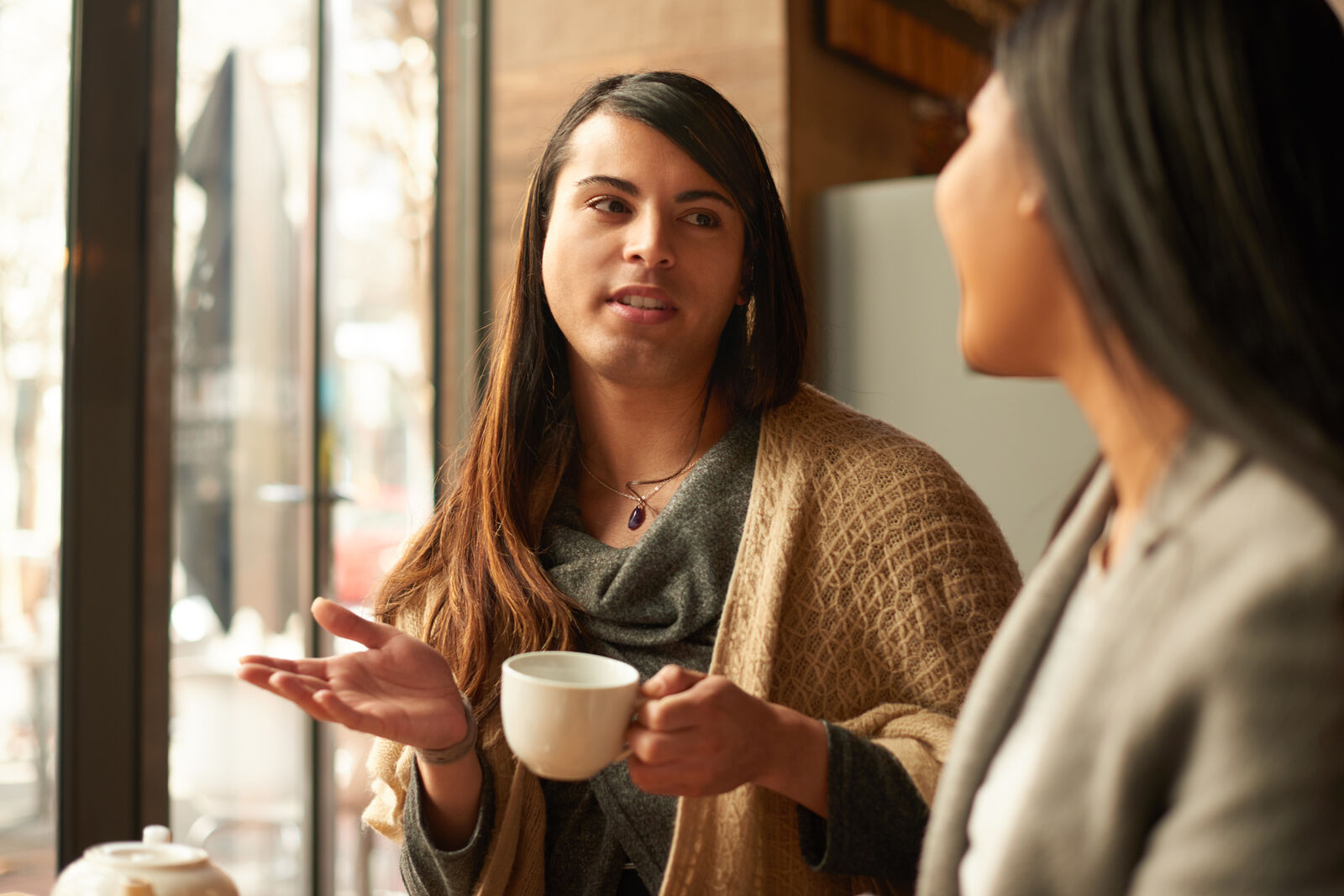There are a number of aspects that are unique to LGBTIQ+ domestic and family violence and finding non-judgmental support is crucial.
Full Stop Australia has partnered with ACON to ensure our counsellors have received training regarding the unique needs and experiences of LGBTIQ+ people and communities as it relates to sexual, domestic and family violence.
We are proud to be seen as an inclusive service provider by ACON for people who are LGBTIQ+.
Note: On this website we use the acronym LGBTIQ+ to refer collectively and inclusively to people of diverse sexualities and genders, and intersex people.
This includes people who may or may not identify as LGBTIQ or as being in an exclusively same-sex, bisexual, pansexual or heterosexual relationship.
LGBTIQ+ domestic and family violence
Domestic and family violence in LGBTIQ+ and cisgender heterosexual relationships share many similarities, including the types of abuse and the impact on the abused partner.
However there are a number of aspects that are unique to LGBTIQ+ domestic and family violence.
Historically, there has been little information or discussion in LGBTIQ+ communities about sexual, domestic and family violence in relationships. Most information on domestic and family violence relates to cisgender heterosexual relationships with the man as the perpetrator.
“People who identify as LGBTQI+ experience domestic and family violence at similar rates to that of the wider community but are less likely to identify the experience as abuse, report violence to the police, or seek assistance from a domestic and family violence support organisation for fear of prejudice and discrimination.
“Sometimes, services may not understand the needs of a LGBTIQ person or the nature of their relationship, or support workers may have preconceived ideas about the diversity of sex [intersex], sexuality, gender or family.”
-It Stops Here, NSW Government domestic and family violence policy
Outing as a method of control
If someone has not disclosed their sexuality, gender (identity, history or expression), intersex or HIV status to their family, friends, workmates or their cultural community the perpetrator of violence may use ‘outing’ or the threat of ‘outing’ as a method of control.
An abuser may also use their sexuality or gender against them, shaming their identity or telling them that no one will help them because they are LGBTIQ+.
Societal stigmas
If an LGBTIQ+ person has been sexually assaulted, they often find it difficult to overcome societal stigmas around LGBTIQ+ sexualities and sexual practices and so finding sensitive and non-judgmental support is crucial.
Isolation and community
The relatively small size and close-knit nature of LGBTIQ+ communities, especially in smaller cities and rural, regional and remote areas, may make it difficult for an abused person to seek help as confidentiality and anonymity is harder in smaller communities. There are far fewer services which are set-up to support gay and transgender men and non-binary people.
An abusive partner may isolate the other from contact with the LGBTIQ+ community by preventing them from reading the LGBTIQ+ community media, attending LGBTIQ+ venues or events or seeing friends from within the community.
This is especially true for people in their first LGBTIQ+ relationship, as they may not have had much contact with the LGBTIQ+ community before the relationship began. Many LGBTIQ+ people experience family violence or rejection from family because of their sexuality and/or gender, making the LGBTIQ+ community an important avenue for support.
Mistrust of police and agencies
Many people in the LGBTIQ+ community have a mistrust of police and other government agencies because of previous negative or traumatic experiences either in Australia or in another country.
Get help
To find help with sexual, domestic or family violence in your community, visit our Find a Local Support Service page or speak to our counsellors on 1800 FULL STOP (1800 385 578).


 1800 385 578
1800 385 578